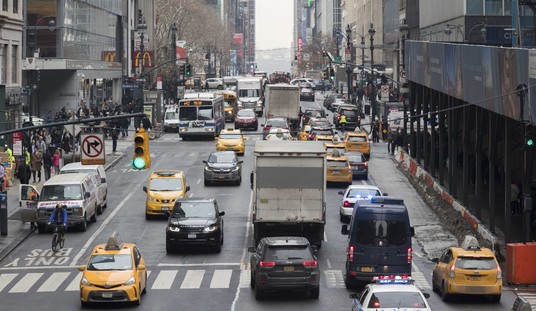The NY Times published a story yesterday with the headline “Iran Quietly Lowers the Temperature With U.S.” The story makes the case that while Iran hasn’t really changed internally, it has realized that squaring off with the Trump administration has not been good for Iran. As a result, Iran has decided to dial back the provocation and hope that it will have a new President to deal with after the U.S. election. In fact, the Times reports Iran is trying to avoid doing anything that might help keep Trump in office:
After years of increasing tensions that nearly led to war, Iran has moderated its approach to the West, shifting from a policy of provocation to one of limited cooperation. The change reflects an effort to avoid direct confrontation with the United States that the Iranians say could benefit President Trump in the November election…
Iran has also concluded that escalating tensions with the United States could provoke armed conflict which, aside from being painful for Iran, could benefit Mr. Trump politically, improving his re-election chances, according to people familiar with the policy…
An adviser to Iran’s foreign ministry said that even the powerful Quds Force — the branch of the Revolutionary Guards that runs proxy militias from Iraq to Lebanon — had been ordered to “act conservatively” and remain in “a holding pattern” until November.
The Trump administration is taking credit for the change in Iran’s tune and it’s pretty clear they deserve at least some of that credit. The major change in Iran’s approach comes after the death of Gen. Qassem Soleimani. Suddenly Iran started thinking about the price it could pay for its actions.
Tehran was caught by surprise when the Americans retaliated for the killing of an American contractor in Iraq in December by killing the leader of Iran’s elite Quds Force, Maj. Gen. Qassim Suleimani. The United States threatened a disproportionate response if another American was killed, something Iran could ill afford.
And of course it didn’t help that Iran was hit with a severe outbreak of the coronavirus, further damaging it’s already weak economy. But today the Wall Street Journal reports Iran continues to support the corrupt, anti-American Venezuelan regime. It is in the process of sending tankers full of gasoline to Venezuela and threatening the U.S. not to interfere:
The possibility of new U.S. sanctions and legal action comes as five Iranian gasoline tankers make their way toward Venezuela, offering a potential lifeline to the embattled regime of President Nicolás Maduro, according to U.S. and Iranian officials and shipping website TankerTrackers.com
Iran has warned it will retaliate against the U.S. if it blocks its ships. As crude markets recover from the disarray of a demand-eroding coronavirus pandemic and a devastating price rout, the Islamic Republic has seized an opportunity to use its oil to curry favor with U.S. rivals, including Venezuela and Syria.
So Iran’s mouth is still writing checks Iran’s military can’t cash. It may be trying to dial back the provocation in some ways but old habits die hard.
In case you’re wondering why Venezuela, where gas is generally subsidized so that it costs only a few cents per gallon, is buying tankers full of gasoline, that’s because domestic production has collapsed. Last week the NY Times reported that people were waiting in line for hours to get gas at the old subsidized price, but the government can’t keep up.
Venezuelan gasoline officially remains by far the cheapest in the world, still priced by the government after years of hyperinflation at a rate equivalent to 0.00000002 cents per gallon. The state-owned gasoline stations still sell limited quantities of fuel at this price, but motorists must queue days in advance for even a chance to buy it.
In practice, drivers who cannot or will not sit in lines for days are forced to pay up to $80 for a five-gallon can of fuel on the black market run by the Venezuelan military.
A U.S. academic who is an expert on Venezuela’s oil industry told the NY Times, “If you give gasoline away for free, eventually you’re going to end up running into trouble.” Yes, and that applies to everything else the government decided to give away for free. If only Bernie Sanders was reading the NY Times.








Join the conversation as a VIP Member